Increase Your Awareness of Joy
One of the most unique and special parts of ourselves is what makes us chuckle, cackle, and keel over laughing. As we move through each day, our brain is wired to keep us safe. It works extra hard tuning in to aspects of our environment that could be dangerous, hurtful, or scary. Ironically, these can be real threats, or just imagined. Because of this, we can take an active role in acknowledging and amplifying the parts of each day that are safe, pleasant, and fun. We can create this practice by reflecting before bed (via journal or speaking to a friend) the times throughout our day when we smiled and felt a light warmth or joy in our bodies. What does laughter feel like in our gut? Does your stomach hurt? Do you lose your breath? The more we notice, the more we remember our joy.
Practice Self-Compassion
It seems that self-compassion is the CMP buzzword(s) of 2020. Self-compassion is not self-indulgence, self-care, or self-esteem. It is the simple, yet woefully complex act of allowing oneself to feel emotions, without judgement. It is like imagining yourself as a friend, putting a hand on your shoulder, using soft vocal tones, comforting and nurturing you. It’s like squeezing your pet after work, as they non-judgmentally hold space for the pain—they are warm and calm. Self-compassion is an action, it takes work. It’s a lifelong, yet worthwhile journey. Throughout my personal expedition, road bumps and detours are enduring friends.
There are times every day when I am flooded with self-judgement. Some ideas are echoed words from others (unkind behavior or accusations directed towards me), and some are worries I carry deep within me. Am I doing enough? Am I purposeful? Am I a good therapist/friend/daughter, etc? I can feel shame rising, attempting to squash all emotion, ready to tell me intricate and exhaustive reasons as to why I am BAD. Self-Compassion to the rescue!
When we are mindful and present, we can attempt to soften and soothe the pain arising from negative beliefs. Maybe I will place a hand over my heart, take a sloooowww breath, and quietly whisper, “This hurts.” For many years, these were moments I desperately tried reasoning with, “I’m not a bad friend, I call her every week…” Arguing with myself was reminiscent of trying to cry out in a dream – mouth wide open, no sound. Counterarguments left me tired and incredulous.
Through pausing, meditation, and a Mindful Self-Compassion class, I learned to (sometimes!) bypass the argument and only acknowledge the suffering. When a painful memory, self-defeating belief, or insecurity arises, I can work towards offering understanding and kindness to the emotion, without automatically fighting myself. Where can you start to offer compassion and warmth in your everyday life?
Follow Your Curiosity
I often hear the phrases, “I am a ___person” or “I never do things out of my comfort zone;” “I am a textbook type-A personality,” you name it. Although categorizing and labeling have some organizational benefits to thinking efficiently, when we put limits on our identity, ways of expressing ourselves, and ways of being, it is challenging to see all parts of who we are. Some examples may be:
— you see yourself as a peaceful, nonviolent person, but have always wanted to take a boxing class.
— you joke about having two-left feet, but continue to be intrigued by Salsa dancing.
— you pride yourself on having a refined taste in music, yet notice a surge of joy when a catchy pop-song is playing in the grocery store.
What would happen if we followed our interests? No matter how trivial, mundane, or small, if we honor the curiosity within us, we begin to know ourselves more. If you are feeling unsure of what your interests are, envy and jealousy are often good indicators for things we value or care about. In my early 20’s, I found myself deeply envious of a singer in my community. As I attended many of the band’s performances, each show left me reeling with self-doubt and shame. Years later, I researched these emotions in detail during graduate school. I learned that envy is the emotion of coveting what another has, which led me to finally acknowledging that I wanted to sing. This realization cleared the path for following my curiosity. After receiving an opportunity to perform, I noticed envy fading, and my interest in singing and guitar increase. Maybe now is the time to pursue our wonder, in whatever form.
“I learned a long time ago the wisest thing I can do is be on my own side, to be an advocate for myself and others like me.”—Maya Angelou



